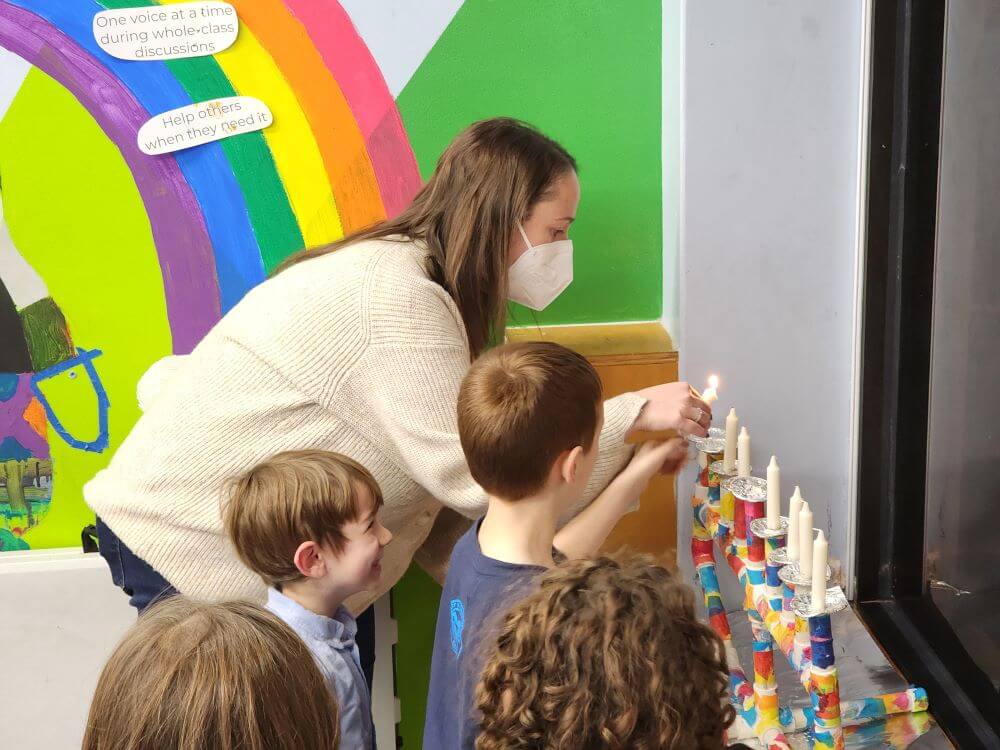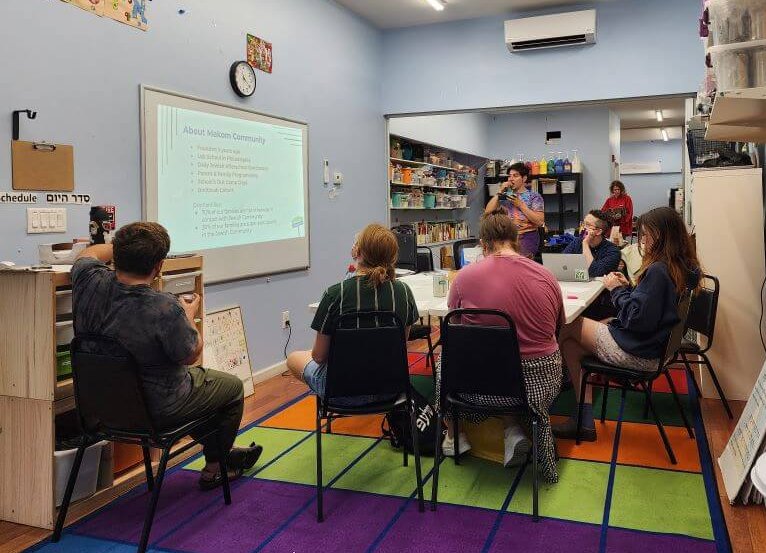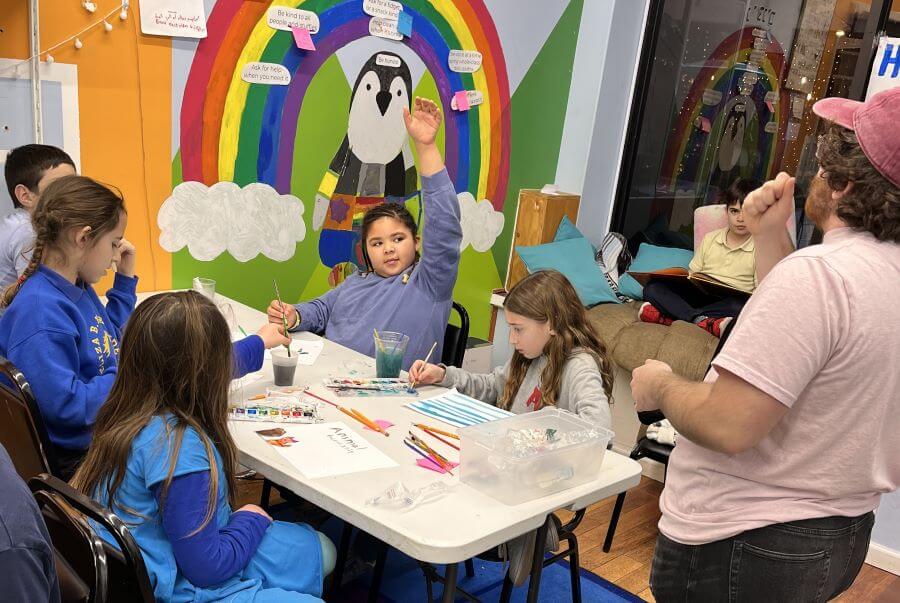
The Mishnah tells a story about Rabbi Nehunyah ben HaKanah. It shares that he offered a brief prayer when he entered the Beit Midrash (House of Study) and again when he left. When he entered, he prayed that no mishap would happen because of him, and when he left, he offered thanksgiving (Mishnah Berakhot 4:2).
Two years ago, I started my journey in Cohort 10 of the Mandel Teacher Educator Institute (MTEI). During that time, I traveled to Chicago for 6 Professional Development seminars. Similar to Rabbi Nehunyah, before each seminar, I would pray that I completed all the necessary tasks in my personal and professional lives so that those I was leaving behind felt supported and that nothing too crazy happened because of my absence. And, upon my return, I would offer thanks; gratitude to the remarkable faculty at MTEI, gratitude to my colleagues for supporting my ongoing learning and days away from our lab school at Makom Community, and gratitude to my family for the few days I was away (as well as to Chicago for some delicious deep dish pizza).
From the very first MTEI seminar, it was clear that this program was an ideal match for where I was professionally as the Director of Teaching and Learning at Makom Community, as well as my personal mission for being a Jewish Educator. MTEI has 8 principles that articulate their vision of teaching and learning for students, teachers, and professional developers. In my current role, I have the pleasure of planning professional development sessions for Makom Community’s team of educators. Over the past several months, I’ve been able to reflect on these principles as well as the needs of my educators to cultivate professional development opportunities that bridge the principles of MTEI and the lab school at Makom Community. I partnered with one of my colleagues, Olivia, our Educator & Researcher to think through how to bring the idea of Lesson Study to Makom. MTEI’s principles and Lesson Study weaved together allowed for the following teaching and learning to happen:
- Learning rooted in collaborative inquiry: Our educators reflected on areas they were hoping to grow. They shared those thoughts with us and we landed on a theme of exploring how to bring more modalities into our classrooms to support our students’ learning.
- Jewish learning at the core: Jewish text is at the core of Makom Community’s curriculum. The educators had time to take a deep dive into a day of lesson planning to think about how they were going to connect that day’s text to diverse and intentional modalities that met the daily goals.
- Intentional creation of community: Educators had the unique opportunity to observe each other’s classes. They had structures set up to cultivate questioning and a deeper understanding of how their peers both do their lesson planning and teach in the classroom. This opportunity provided them with a new view of how their colleagues facilitate and teach Makom Community’s unique pedagogy of Jewish Placemaking. The principle of how we talk matters came to fruition in our professional development as we used protocols to reflect on classroom observations. We honored the perspectives everyone was bringing to the conversation with the hope of promoting learning for both educators and learners.
- Teachers learn and learners teach: I firmly believe that we learn as we teach. As teachers knew they were being observed, they gained new perspectives on their teaching. And those observing came to the classroom with a new role: the observer- a role that they often don’t get to take on in part-time Jewish education settings.

One of the most unexpected joys of my role has been getting to work with educators who are just starting their careers in Jewish education, bringing me to another one of the principles: leading for change and empowering new leaders. MTEI believes that educational communities need inspired leaders and that when leaders are inspired, they empower new leaders. I hope that as my team continues to learn and support each other through professional development, they too feel inspired and ready to take on new leadership roles. I know that I am inspired daily by the teaching and learning that happens in their classrooms. The final MTEI principle which states that there is moral meaning in the work we do explains that Jewish education is about creating a more just, equitable way of being in the world. If Rabbi Nehunyah was here today, I’m sure he’d be blown away by what Makom Community’s educators and learners discuss each day in their classrooms, which sometimes truly feel like a Beit Midrash. My prayer for him would be to feel a little more comfortable if he makes a mistake (we all do it!) and comfort knowing that the kids we’re educating today, are guaranteed to be changemakers carving the way for a more equitable and just way of being in the world.

